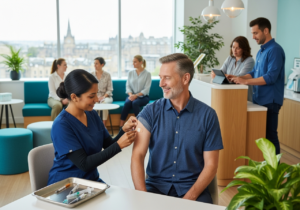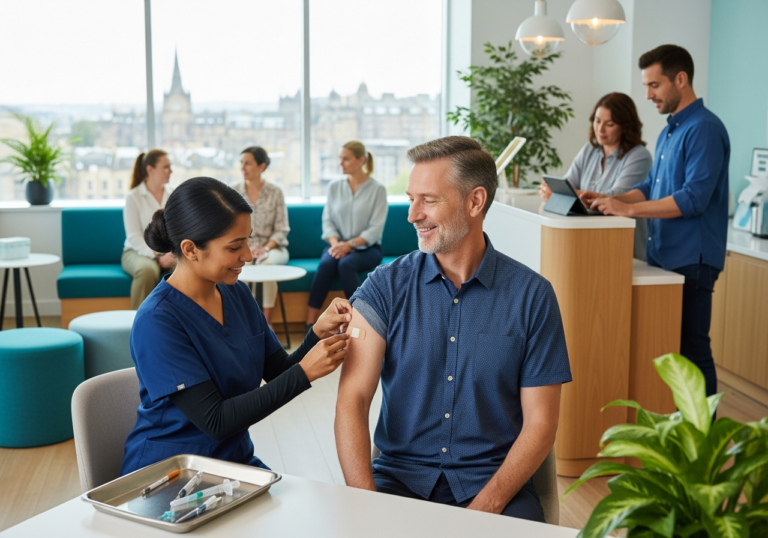Understanding Dengue Fever and Its Global Impact
Dengue fever is a mosquito-borne viral illness that has become an increasing concern for travellers, especially those heading to tropical and subtropical regions. With over 100 countries now reporting active transmission, the World Health Organization classifies dengue as one of the top ten threats to global health.
The virus is transmitted by the Aedes mosquito—primarily Aedes aegypti—which bites during the day. Once infected, individuals may experience a sudden high fever, severe headaches, muscle and joint pain (often referred to as “breakbone fever”), skin rashes, and general malaise. In some cases, the condition can develop into severe dengue, previously known as dengue haemorrhagic fever, which can be life-threatening and requires hospitalisation.
While there is no specific antiviral treatment for dengue, supportive care and early medical intervention can significantly reduce risks. However, prevention remains the best defence—and that’s where the dengue vaccine comes in.
The Science Behind the Dengue Vaccine
For many years, dengue prevention relied solely on mosquito avoidance strategies: insect repellent, long clothing, and mosquito nets. But with the increased frequency and severity of outbreaks, especially in urbanised travel hotspots across Asia, Latin America, and parts of Africa, the need for a vaccine became urgent.
The dengue vaccine currently available in the UK is Qdenga® (manufactured by Takeda Pharmaceuticals). It was approved by the European Medicines Agency in 2022 and offers protection against all four dengue virus serotypes—DENV-1 through DENV-4. This is a crucial feature, as a person can be infected by more than one serotype over their lifetime, and the risk of severe dengue increases with subsequent infections.
Qdenga is a live attenuated vaccine, meaning it contains weakened forms of the virus that stimulate the immune system without causing illness. It’s administered as two doses, given three months apart.
Who Should Consider the Dengue Vaccine?
The dengue vaccine is recommended primarily for individuals travelling to or living in areas with a high risk of dengue transmission. This includes parts of Southeast Asia, Central and South America, the Caribbean, sub-Saharan Africa, and the Western Pacific.
Travellers who spend extended periods in endemic regions, such as backpackers, aid workers, or those visiting friends and relatives, may particularly benefit from vaccination. Likewise, healthcare professionals working in these settings should consider immunisation due to higher potential exposure.
It’s also worth noting that dengue doesn’t discriminate by season. Unlike malaria, which tends to spike in the rainy season, dengue outbreaks can occur year-round in tropical zones, making timing less of a protective factor.
Age Eligibility and Safety Considerations
Qdenga is currently approved for individuals aged 4 to 60 years. The vaccine has shown a good safety profile in clinical trials, with most side effects being mild and short-lived. These may include fever, headache, soreness at the injection site, and fatigue—typical of many routine vaccinations.
However, as with any vaccine, it’s important to discuss your medical history with a qualified travel health professional. Pregnant women, individuals with compromised immune systems, or those with certain chronic conditions may not be suitable candidates.
Effectiveness and Duration of Protection
Clinical studies have shown that Qdenga offers robust protection against symptomatic dengue and hospitalisation. Its efficacy does vary slightly between the different serotypes, but overall, it provides strong cross-protection—a critical factor in reducing the risk of severe disease.
Although the exact duration of immunity is still being studied, current data suggest that protection lasts for several years after the two-dose course. Ongoing surveillance will help determine if booster doses are needed in the future.
Why Vaccination Matters—Beyond Individual Protection
One of the most compelling reasons to get vaccinated is the role of community protection. While dengue isn’t spread person-to-person like some respiratory viruses, reducing the number of infected people in a population decreases the chance that mosquitoes will pick up and transmit the virus further.
This is particularly important in densely populated cities and popular tourist destinations, where outbreaks can spread rapidly. When travellers protect themselves, they also help safeguard the communities they visit—and, by extension, those back home.
Other Preventative Measures Still Matter
It’s worth emphasising that the dengue vaccine complements—not replaces—other mosquito prevention efforts. Daytime mosquito bites can still transmit other diseases like Zika and chikungunya, which are not covered by Qdenga.
Wearing light-coloured clothes, using insect repellent containing DEET or picaridin, and staying in accommodations with screened windows or air conditioning remain essential practices, even after vaccination.
Planning Ahead: Timing Your Vaccination
Since the vaccine involves two doses spaced three months apart, planning is key. Ideally, you should begin the vaccination course at least three months before your intended travel date to ensure full protection.
Even if you’re unsure about your travel timeline, starting the conversation with a travel health nurse or doctor early can help you make informed decisions and avoid last-minute stress.
Final Thoughts
With the expansion of global travel and the increasing prevalence of dengue, especially in popular holiday destinations, the availability of a safe and effective vaccine offers peace of mind for many. Whether you’re a healthcare worker heading abroad, a frequent traveller, or simply planning a long-awaited tropical escape, protecting yourself against dengue is a smart move.
If you’re considering the dengue vaccine or have questions about your suitability, it’s wise to consult with a specialised travel health clinic. At the Edinburgh Vaccination Clinic, our team is ready to guide you through your options and help you prepare confidently for your journey.
You can learn more or book your appointment today by visiting our dengue vaccine page.





